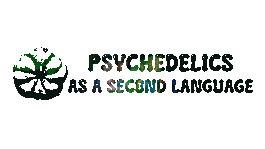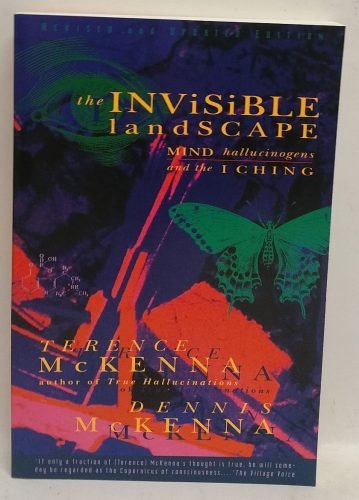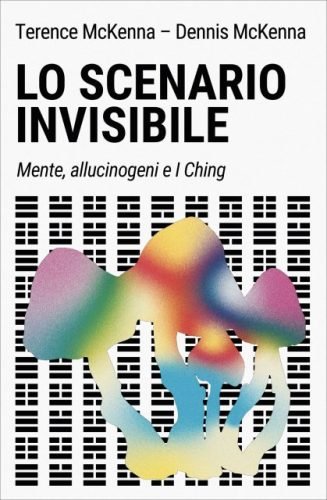Breaking Language Barriers with Francesco De Luca
Upon entering the realm of entheogens, I instantly found a love for the Lophophora genus (Peyote). The reports of Dr. Louis Lewin, the chemical work of Ernst Späth on the synthetic version of the psychoactive compound of the cactus, and the origins of Alberto Vojtechii were fascinating. However, there was a big issue. These works were published in the original languages, German and Czech, and have since become forgotten. The evolution of linguistics has made these reports nearly impossible for non-native speakers to read.
Just like myself, many people have this issue. They want to learn about Psychedelic compounds, but they don’t know English, so they aren’t able to read the beautiful pieces of Alexander Shulgin, Richard E. Schultes, Timothy Leary, or even Dennis and Terence McKenna.
This ideology stuck with me for quite a while. Perhaps some people wouldn’t be able to enjoy these wonderful books in this day and age, but this was until I met Francesco De Luca via Instagram, an Italian poet, English, Chinese and Polish speaker, now learning Portuguese and bringing to life the translation of the McKenna brothers’ books into Italian! Breaking the barriers of language in the psychedelic space.
Enjoy our conversation about how literary habits have been slowly dying, his view on the world as a McKennian, and the importance of his work!
When and how were psychedelics introduced to your life?
I was introduced to psychedelics out of a desire to delve deeper into the mystery of life. I was in Prague, and I was 17 years old. We dropped some LSD. That was my very first time, but I have always been a searcher, since I was probably 12. At that time, I was already reading books about parapsychology and mysticism. My mother was a teacher, and she raised me by instilling in me a passion for reading and the importance of knowledge.
A few decades have passed, and my relationship with psychedelics has changed. I am a poet now, as I was then, and I constantly pay attention to “that something” calling me while moving, pulsing, and breathing from “the other side.” Psychedelics are “just” a key to exploring realms beyond conventional perception, revealing insights we could not have imagined, sparking a lifelong interest in consciousness, philosophy, and mysticism.
How would you describe the influence of the McKenna brothers in your life?
The McKenna brothers profoundly shaped my understanding of psychedelics and consciousness. Terence’s lectures and Dennis’s scientific approach created a balanced view—one that saw psychedelics as not just a means of escape but as tools for unlocking creativity, wisdom, and a deeper connection with nature.
What they did in their lives changed my perspective about what was possible and what was not. I was just a grommet, probably studying at the university, when I first read True Hallucinations, and their experience at “La Chorrera” undoubtedly encouraged me to walk along the path that was ready in front of me. I went to China and stayed there for nine years, searching for truth through the study of different cultures, philosophies, and languages (which create our reality and give us the chance to explain what may be unexplainable in other cultures, minds, times, and consciousnesses). If I found the courage to walk all the roads I have, it’s also because of Terence and Dennis McKenna’s example. We must be brave and delve deep within ourselves. This is one of their greatest teachings I would emphasize.
From your point of view, what is the importance of following psychedelic literature?
Following psychedelic literature is vital because it contains the history, philosophy, and science that guide responsible use and deeper understanding. This literature provides essential knowledge, allowing us to contextualize these powerful substances, preventing misunderstanding and misuse. But it’s also important to contextualize the period, the social-psychological—I would even say anthropological—context in which those books were produced and the perspective from which they were written. Books are just another tool, like psychedelics. We must use them responsibly, with a critical approach.
Study, if it’s not blind and narcissistic, can save us from serious mistakes. Because study itself, in my opinion, can become a double-edged sword. Of course I am not saying not to study. Just don’t close your mind inside another paged-room.
With social media, habits such as reading are becoming somewhat out of focus in the minds of young people. How do you think this will affect the future and the future of psychedelic research?
The decline in reading could reduce the depth of understanding among younger generations, making them more susceptible to shallow interpretations or misconceptions about psychedelics. This could stifle serious research and diminish the cultural appreciation of these substances’ history and impact. However, the new generations grew up in a different world. Speaking for myself, I grew up in the 80s, and at that time, if we wanted to find information, we had only books available, and sometimes it was hard to have the right books in hand at the right time. Timing is important not only in business but also in life. One book could save our life; it could inspire us to do something unpredictable only days later. But now, people of all ages have new tools, which may even be more direct and powerful than books: the Internet. We are all visibly connected, not only invisibly, to each other. And this is something uncontrollably powerful. Information—whether bad, fake, or good news—flows in the transparent flux of intentions and desires of the living. In this landscape, psychedelics will have a role. They are already playing a role in shaping the future, as we are visualizing its frame with increasing clarity and speed. We are the future we believe it will be. That’s why we need to discover who we are, what we want, where to go, and what not to do. We are the drug kings, the psychedelic shamans of our time, and we have a huge responsibility. We must hold firm to the sword of light.
Besides being a bard of all trades, Terence McKenna explored the human mind to the best of his capabilities. What is your favorite Terence McKenna quote about the mind?
One of my favorite quotes from Terence and Dennis is found on the last page of The Invisible Landscape:
“May it not be that the Tao leaves creation unfinished, and humans, who appear according to the will of Tao, are given further levels of creation to weave—the mode of the completion of each level more and more a matter of human decision, of the decisions of visionary humanity? Now the time of rebirth has come upon the world again, and though these years open wide their solstices and eclipses and windows to the ideas, yet, finally, the manner in which we present ourselves in that cumulatively intense final moment may well be a personal decision. Time grows ever more short; in the cosmic year-day of history, dawn is already breaking over Jerusalem.”
May it not be.
Terence warned us that there would be a point in history when things would become very weird, so people would have to talk about it. Would you say that the time is now?
Absolutely. We live in a time of vast technological, ecological, and social changes, leading us into unprecedented territory. Terence’s words seem prophetic; the need to discuss, question, and reshape our understanding of reality has never felt more pressing. But it’s hard to determine the range of this “now.” What is this “now” we define? When did “this now” begin?
I’m more inclined to think of time as something evolving through the mental emanations (and therefore actions) of humans. But even these definitions or proto-philosophical musings are temporary, leaving time as it is.
It’s already late. Let’s act “NOW”.
As a McKennian, what views do you share with the McKennas in the current state of the world and the current state of psychedelic research? What points do you think might be missing in what we currently have?
I align with the McKennas’ views on the importance of psychedelics as tools for personal and collective evolution. However, what might be missing is a holistic integration with indigenous perspectives and ecological values, which ground these experiences in a deeper respect for nature and life itself. To achieve this, we need changes in laws and media. But first, we should transform human self-perception. It’s like a dog chasing its tail, isn’t it?
You translated The Invisible Landscape: Mind, Hallucinogens, and the I Ching, and The Brotherhood of the Screaming Abyss to your native language, Italian. What made you decide that this is something you wanted to do?
I felt called to bring these essential works to Italian readers, offering access to the McKennas’ perspectives and bridging cultural gaps. Their ideas transcend borders, and I wanted these powerful texts to inspire a new audience, even if many theses within The Invisible Landscape are now outdated. These lectures can inspire people, especially young people, to understand the importance of their decisions and to never stop seeking truth, going beyond what may appear as limits or impossibilities.
I started the translation one day, I don’t remember exactly If it was in 2018 or 2019, without any contact with the McKenna family, but I felt strongly that even though I was just beginning the translation process, it was already done. I lived a temporal schizophrenia, perhaps. I don’t know. Anyway, we are here today talking about what happened. I first reached Dennis McKenna because Mike Margolies, co-steward of the Global Psychedelic Society, helped me reach him. For Kat, I must thank Erik Davis, who kindly connected me with her for Terence’s rights. They were both excited and surprised about the task I set for myself.
I had been lucky also because a good friend of mine, Beniamino Trombetta, is Associate Professor at the Department of Biology and Biotechnology C. Darwin , Sapienza University of Rome, Italy. He knew the Mckennas’ brothers books. So when I had strong doubts about the best possible translation I had an expert
besides me.
Anyway, once we reached an agreement, which took over a year, Spazio Interiore, an Italian publishing house run by Giovanni and Elisa Picozza and specialized in psychedelia, immediately accepted my proposal for publication. They already knew that The Invisible Landscape is a cult classic in psychedelia. It seems to be the first translation into a language other than English. I’m thrilled about that and I honestly wonder why.
The Brotherhood of the Screaming Abyss will be released in Italian next month, on December 17th, for Dennis’s birthday. I will publish it personally with my Delufa Press, a new publishing house based in Rome. Its purpose is to publish books that may not easily find a place in the market, even if they are crucial for societal and consciousness evolution. This is our mission—to support this journey, helping people evolve through inspirational publications. Dennis’s book will be our second publication, and we’re very pleased about that.
Lastly, what other projects are you translating, and how can people buy them?
I’m currently translating Chinese poetry. As I mentioned, I am a poet and a sinologist. I have been teaching Mandarin for nearly ten years. It’s something I love. Sharing what you love with others is the most fulfilling experience we can have, helping people find what humanity is searching for.
Contact Francesco:
in**@*********ss.com
Delufa Press 德陆法出版社 (@delufapress) Instagram




